- Home
- David Lubar
The Battle of the Red Hot Pepper Weenies Page 8
The Battle of the Red Hot Pepper Weenies Read online
Page 8
If I got in a fight, the kid I hit wouldn’t be angry with me the next day. For him, the fight had never happened. I could beat someone up after school, and never worry about the consequences. If I didn’t do my homework, nobody would ever know. If I ate three bowls of ice cream, I didn’t have to worry about the calories. whatever I did, there would be no long-term consequences. No permanent record. No lasting breaks or scars.
The only thing that remained broken was the clock. The crack in the case was always there. The wheels always turned the wrong way. I tried changing the date so I could stay in the weekend, but the control was jammed. I didn’t waste much energy worrying about the clock. I had other things on my mind.
I went after the ice cream big-time. A half gallon a day. The best part was that Mom never noticed, because each morning happened before the day I ate the ice cream. Even when I got caught with an empty carton and a spoon, and yelled at for being a pig, there wasn’t any real punishment. Each new morning erased everything I’d done the day before. My parents had no more idea I’d done something wrong than our goldfish did.
I learned to skateboard. Even bad breaks were bearable as long as I knew they’d be gone the next morning. There was only one problem—I was getting younger. That was fine for now, since I got smarter and smarter than all the kids in my class. Tests were no trouble when all they asked about was easy stuff. I never even had to study anymore. But I didn’t want to go so far back that I ended up in kindergarten.
A year passed. And then another. When I found I couldn’t reach the top shelf in my closet, I knew I had to swing time back around so it moved in the right direction.
I was afraid to break the clock, since that could stop it from running, and I didn’t want to get frozen in time. Or maybe it would just stop the days from changing. But I didn’t want to get stuck that way, either, especially now that I was little. I wanted time to move ahead. I figured the best thing was to try to fix it.
I’d miss the ice cream and the thrill of taking ridiculous risks, but I really didn’t want to end up in kindergarten, or in a crib. So, right before I went to bed, I unplugged the clock, opened it, and looked inside. There was a bent lever, and one of the gears had fallen off. I straightened the lever, replaced the gear, and put the case together. Then, I plugged the clock back in. As soon as I did, the display spun forward so fast, the dates blurred.
I felt as if I was spinning along with the display. I got so dizzy, I dropped down on my bed. The whole room seemed to be spinning now. The pressure grew so intense, I realized I was going to pass out. As my consciousness slipped away, I wondered whether I really wanted to move forward. I reached for the plug, but I never made it.
I woke up in pain. I was hit with such an unbelievable tidal wave of agony that I almost passed out. Everything ached. Especially my legs. I wanted to look at them, but something was in my way. I tried to raise my head. I could barely move it.
The thing that blocked my view rose and fell like a living creature. At first, I thought I’d been pinned to the bed by some hideous formless monster. Then I realized the thing moved when I breathed. When I gasped, a ripple shot through it.
Oh, no. The beast was my stomach. It was gigantic—so large, it blocked my view and pinned me on my back. I raised an arm. Rolls of fat hung from it. It was too heavy to hold up for more than a second. I dropped my arm back to the bed as sharp pains burned through my nerves and bones.
I turned my head to the side. The clock was there, set back to the very day and date when I’d broken it. I’d returned to the present like a stretched rubber band, along with all the broken bones and smashed joints I’d picked up in my journey through the past. Along with scrapes and cuts. Along with all the ice cream, candy, pizza, and other food I’d gorged on. Along with every single bad thing I’d done to my body. Even my teeth ached. As I pushed my tongue against them, one fell out. The rest felt loose.
I swatted at the clock, but it was beyond my reach. All I could do was look at it as each agonizing minute ticked by. Today was a nightmare. I knew tomorrow wouldn’t be any better. All I had for comfort was memories of yesterday, and those were quickly fading.
TAKE A WHACK AT THIS
The phone connection was pretty bad. That wasn’t surprising, since Stan’s dad was calling from the Brazilian rain forest. Even so, it was good enough for Stan to hear him say, “I can’t be home in time for your birthday. But I’m sending you a surprise.”
“Dad’s sending me a surprise for my birthday,” Stan said after he’d hung up. He was sad that his dad wouldn’t be there, but he was used to it. His dad traveled all over the world, studying plants, insects, and animals.
“That’s great,” his mom said. “A surprise present will make the day really special. Maybe we should have a party.”
Stan wasn’t sure about that. He’d had a couple parties, but they weren’t all that much fun. Mostly, the kids sat around, ate potato chips, and stared at one another while they waited for the cake. But maybe his dad would send him something so incredibly cool that a party would actually be fun.
Stan checked the porch each day for a package. Finally, one week before his birthday, he found a large box right outside the door. He tore it open and discovered a giant ball. But it wasn’t the kind of ball you play with. It was covered with red, yellow, and green stripes. There was no note or card—just a slip of paper with the word PIÑATA.
“Cool.” Stan knew what a piñata was. They were filled with candy. Kids would wear a blindfold and swing a bat until someone connected hard enough to smash the piñata open and spill the candy.
He took the package up to his room, then told his mom, “I decided I want a party.” He didn’t mention the piñata. She wasn’t big on candy, and he suspected she really wasn’t big on blindfolded kids swinging baseball bats.
Stan invited all his friends. And since that was only two kids, he also invited a lot of his other classmates. He couldn’t help bragging to everyone that he had a supersecret surprise.
The morning of Stan’s birthday, his mom set up a table in the backyard with chips and soda. Stan waited until she went inside. Then he tied a rope around the piñata and hung it over a tree branch.
“Cool, a piñata,” Trevor said when he arrived. All the other kids had the same reaction. Stan checked to make sure his mom wasn’t coming out, then grabbed the bat and large handkerchief he’d hidden behind the garage. “Who wants to go first?” he said. Not that it mattered. He planned to control the rope so that nobody else could hit the piñata. After all, it was his present. He was the one who should have the fun of whacking it.
His plan worked. Everyone missed. “I guess it’s up to me.” Stan handed the rope to Trevor, who was so amazingly uncoordinated, he’d never pull the rope at the right time to avoid the piñata’s destruction. Then he grabbed the bat, put on the blindfold, and got ready to give the piñata a beating.
Inside, Stan’s mom was reading the mail. There was a letter from her husband. He started out with, “I’m sending home some amazing specimens I’ve collected. There’s a large box coming. It contains the egg case of a giant piñata spider. Be careful not to break it. It’s perfectly safe as long as it remains intact. But the spiders are incredibly aggressive once they are released.”
Stan’s mom frowned. She hadn’t seen any large package. Just the small one that came that morning with Stan’s present. She hadn’t told him about it yet. She figured she’d let him open it during the party. That would be fun for all the kids. She thought about asking him whether he’d seen a large box. But he was busy with his friends. She could ask him after the party was over.
It was only slightly later—maybe a minute at the most—when she heard the first screams coming from the backyard. Screams, shrieks, and some minor crashes. She couldn’t help smiling. It definitely sounded like the kids were running all over the place. Her son’s shouts seemed to be the loudest of all. His squeals of joy made her feel good.
“Those kids are really h
aving a fun time,” she said as she settled in her chair and sipped a cup of tea. “I hope the neighbors don’t mind a little noise.”
KING OF THE HILL
As soon as I heard the high-pitched voices and the clatter of stones in the distance, I tried to lead Duncan away from the slag pile. But I guess Duncan’s hearing is just as good as mine. Or maybe even better. Predators have great hearing. Duncan might not be a wolf or a jaguar, but he definitely responded to the sound of potential prey.
“Hey, let’s go to the mall,” I said as he started to cut through the woods.
“The mall’s for losers.” He sped up. The voices were clearer now. It sounded like seven or eight of them.
I chased after him. We broke through the trees, and I saw them. Looked like second-or third-graders, climbing over the slag heap of broken shale we called Bare Head Mountain. It wasn’t a mountain—just a hill covered with loose stone. It had three boulders at the top. The one in the middle looked sort of like part of a head. The kids were pushing, laughing, rolling, and having a great time, screaming, “I’m king of the hill,” as they fought to stay on the top.
“Wrong.” Duncan jabbed his thumb at his chest. “I’m king of the hill. They just don’t know it yet. But they’re gonna learn.”
“Come on, this isn’t any fun,” I said.
“It will be.” He jogged ahead.
I stood for a moment, wondering whether to leave. Duncan liked to play rough. And he didn’t seem to care who he played with. He was just as happy tossing around a couple third-graders as he was tackling a middle school kid. There was no way I could stop him. He’d kick my butt and enjoy every second, even though I was supposed to be his best friend.
Duncan was already at the bottom of the hill. He reached out and grabbed a kid who was just scrambling up. He actually lifted the kid off his feet before he flung him backwards.
The kid landed facedown. He got up on his hands and knees, then fell again. The rest of the kids didn’t seem to notice. I guess they were still too busy trying to be king of the hill.
I walked over to the fallen kid. He turned his tear-streaked face toward me, then gasped like I was some sort of movie monster.
“You okay?” I asked.
He nodded and made wet, gulping sounds.
“You might want to take off.”
He got up and tottered toward the woods. Another kid landed at the bottom of the hill. He sat up, then clutched his shoulder.
Duncan had gotten about halfway to his goal, and so far, he’d taken out four kids. The kid at the top had the advantage of being able to see what was happening. He turned and scrambled down the other side of the heap. The two remaining little kids kept tugging at each other, trying to become the new king. They didn’t have a clue that the game was about to change.
Duncan grabbed them by their shoulders and flung his arms out, tossing the kids aside. They came to a rest at the bottom of the hill, slumped like rag dolls.
I made sure neither of them had broken anything, then watched as they fled into the woods.
“I’m king of the hill,” Duncan said.
“Yup.”
“Try to knock me down.”
“No thanks.”
“Come on. It’s no fun by myself.”
“I’m going home.” I turned away.
“No.”
The word sent a chill through me. The way he said it, I felt like a dog being yelled at. I sighed and started to climb the hill. I figured I’d give it a good effort, try to avoid getting injured when he pushed me down, and then pretend I was too hurt to play anymore.
Halfway to the top, I paused.
“Scared?” Duncan asked.
I didn’t answer. I was watching the boulder to his left. It had moved. Not like it was rolling. But—and I know this sounds crazy—like it was expanding.
“Come on, wuss! Come knock me off.”
I took another step. The boulder expanded a bit more.
“Why don’t you come down. It’s dangerous up there.”
“Why don’t you knock me down?” He tilted his head back and spat in the air. I dodged as the loogie arced down toward me.
The boulder kept expanding. No. It wasn’t expanding. That wasn’t the right word. It was unfolding.
Duncan stooped, grabbed a rock, and lobbed it in my direction. I guess he was out of spit.
The boulder continued to unfold, like a fist unclenching. The rock Duncan threw at me cracked against the slag a yard to my left.
The fist was fully unclenched now. The boulder on the other side of Duncan also started to open.
“Look!” I shouted, pointing to the stone hands on either side of him.
“Nice try.” He grabbed another rock.
The hands jutted to the side. Loose rocks and slag slid down the hill as arms extended.
He rose. He. It. whatever you call a slag hill with arms and legs and a crude head. He rose to his feet. I tumbled from mine and rolled to the ground.
I looked up. Duncan was atop the rock head, screaming, “King of the hill! King of the hill!”
One rock hand reached up, curled a forefinger, and flicked Duncan off. He sailed over my head and landed somewhere in the woods.
In the face, stone lips moved—slowly, as if it had been centuries since they last parted. The voice, a low rumble like the groan of a rock slide, spoke. “The hill is king of itself.”
I stood there, frozen, as he folded back down. Then I turned and ran into the woods, wondering whether Duncan could have survived.
I found him a hundred yards away, lying on his stomach across a fallen tree. His shirt had been shredded by the branches that broke his fall. He had the groggy eyes of a boxer who’d just lost fifteen straight rounds. His leg was bent the wrong way. His face was cut and bleeding. The injuries were bad, but not fatal.
The little kids had found him, too. They were taking turns climbing up on his back and shouting, “I’m king of the bully.”
I thought about chasing them off, but it looked like they were having a lot of fun, and they didn’t seem to be hurting him all that much.
“The hill is king of itself,” I told Duncan. I figured it was worth sharing the message.
“What?” He seemed puzzled. Maybe he was too stunned from his fall to understand. Or maybe he was the sort of kid who could never believe anything was better or stronger than he was. Not even after he’d been turned into a piece of living playground equipment. It didn’t matter. I understood the message.
I headed off to get help. Duncan would need a lot of patching up. He’d need plenty of medical attention. And he’d need to find someone else to hang out with.
BOOK BANNING
Morley Blezner slunk into the school library, paused to glare at Ms. Dawner, the librarian, and Mr. Lawrence, the library assistant, and then stomped over to the shelves. He’d rather be almost anywhere else. Books were stupid. The library was stupid. But he had to pick a book for a report. And he didn’t have any at home. So he had no choice.
Ms. Dawner walked over to him, all smiley and cheerful. “Can I help you find something?”
“No.” Morley turned away from her. He could find his own book. He was sure she’d give him something really bad. Something thick and important. He wanted to get away from her before she tried to offer more help. He walked between two rows of shelves, so he’d be out of sight, and pulled a thin book out at random.
There was a spaceship on the cover. “Cool,” he said. He opened the book and saw it was filled with pictures from science fiction movies. He spotted a page with a scene from his favorite movie. “Awesome!”
He thought about taking the book out. But he wasn’t interested in the rest of the pictures. He checked over his shoulder. Nobody could see him. Slowly, carefully, so it wouldn’t make any sound, he ripped the page from the book. Then he slid the book back on the shelf.
As he turned away, something slammed against the back of his head.
“Hey!” Morley spun aroun
d, ready to throw a punch. But nobody had hit him. He looked at the floor. The book was there, like it had flown off the shelf. Another book, a lot thicker than the first, shot at him from a lower shelf, bouncing off his chest.
“Ow!” Morley staggered back.
More books flew at him from both sides. He turned and ran, fleeing through a hail of books.
The books drove him out of the aisle and across the library. He raced toward the door. Before he got there, he had to pass the reference section. He almost didn’t make it out alive. A couple encyclopedia volumes, a world atlas, and a whopping unabridged dictionary did major damage.
Finally, Morley escaped through the double doors. Crying, gasping, bloody and bruised, he limped down the hall toward his class.
“Well, he’s gone,” Mr. Lawrence said as the doors hissed shut behind Morley.
“You know,” Ms. Dawner said, “I’m still not sure book banning is a good idea.”
“It’ll do until something better comes along,” Mr. Lawrence said. “I just wish the process didn’t make such a mess.” He sighed, and started putting the books back on the shelves.
BRACES
Until she stepped into Dr. Kublanko’s waiting room, Shelly felt pretty good about getting braces. Half the popular kids in school wore them, and Shelly did have to admit that her overbite made her look more than a little bit like a bunny. She got tons of advice from her friends once she spread the news.
“Chew lots of gum now,” Sarah told her, “because you won’t be chewing any once they put the braces on.”
“Plan on eating spaghetti for the first few days,” Lorie warned her. “You won’t feel like chewing.”
Now, she was just minutes away from her first session in the chair. It was only an exam, but it brought her that much closer to the moment when it all became real. The waiting room was so dim and gloomy, Shelly paused right inside the doorway.

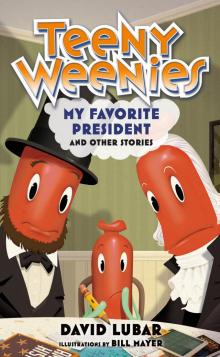 Teeny Weenies: My Favorite President
Teeny Weenies: My Favorite President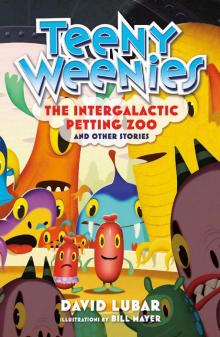 Teeny Weenies: The Intergalactic Petting Zoo
Teeny Weenies: The Intergalactic Petting Zoo Teeny Weenies: The Eighth Octopus
Teeny Weenies: The Eighth Octopus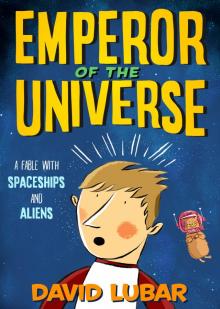 Emperor of the Universe
Emperor of the Universe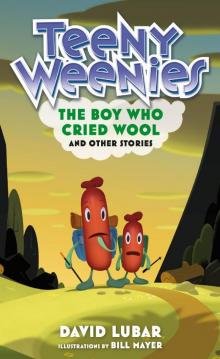 Teeny Weenies: The Boy Who Cried Wool
Teeny Weenies: The Boy Who Cried Wool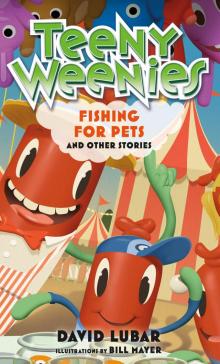 Teeny Weenies: Fishing for Pets
Teeny Weenies: Fishing for Pets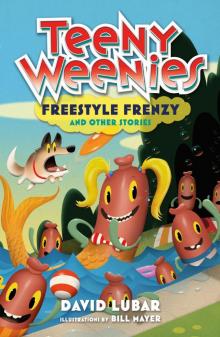 Teeny Weenies: Freestyle Frenzy
Teeny Weenies: Freestyle Frenzy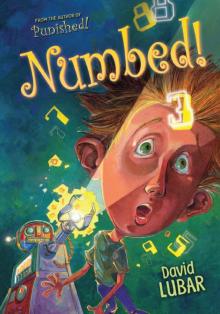 Numbed!
Numbed!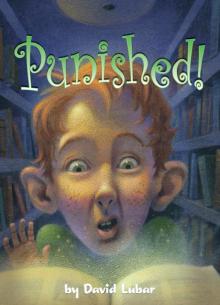 Punished!
Punished!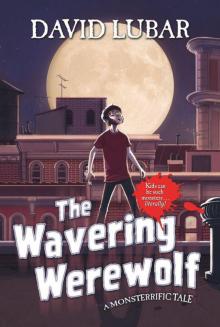 The Wavering Werewolf: A Monsterrific Tale (Monsterrific Tales)
The Wavering Werewolf: A Monsterrific Tale (Monsterrific Tales)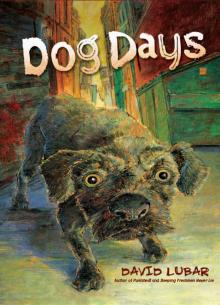 Dog Days
Dog Days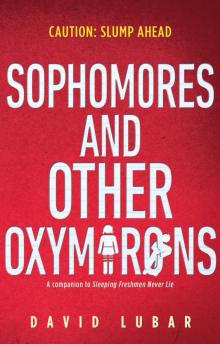 Sophomores and Other Oxymorons
Sophomores and Other Oxymorons The Psychozone
The Psychozone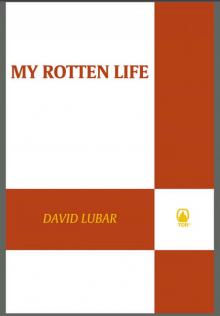 My Rotten Life
My Rotten Life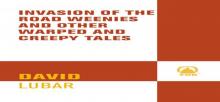 Invasion of the Road Weenies
Invasion of the Road Weenies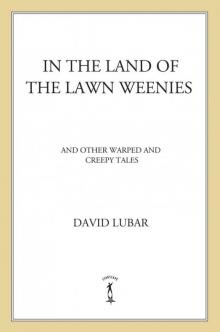 In the Land of the Lawn Weenies
In the Land of the Lawn Weenies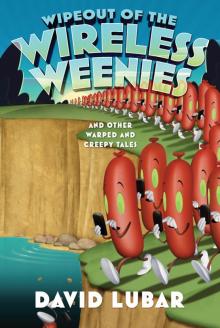 Wipeout of the Wireless Weenies
Wipeout of the Wireless Weenies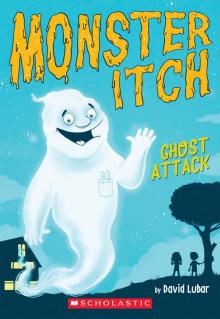 Ghost Attack
Ghost Attack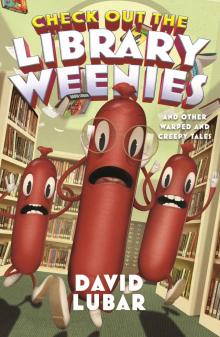 Check Out the Library Weenies
Check Out the Library Weenies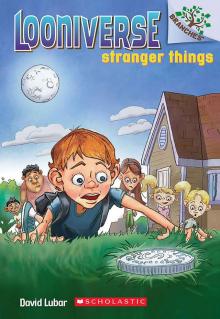 Looniverse #1: Stranger Things (A Branches Book)
Looniverse #1: Stranger Things (A Branches Book)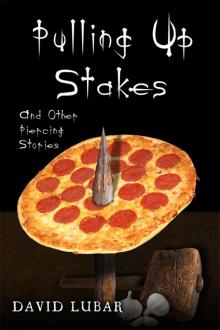 Pulling up Stakes and Other Piercing Stories
Pulling up Stakes and Other Piercing Stories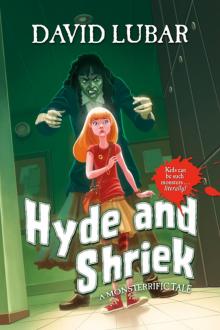 Hyde and Shriek
Hyde and Shriek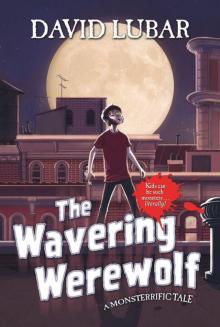 The Wavering Werewolf
The Wavering Werewolf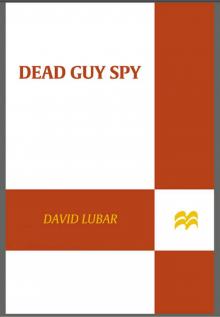 Dead Guy Spy
Dead Guy Spy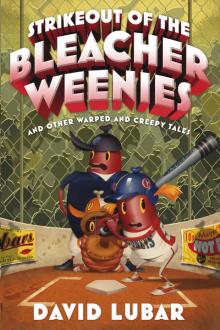 Strikeout of the Bleacher Weenies
Strikeout of the Bleacher Weenies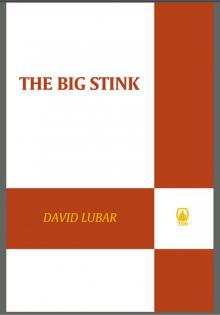 The Big Stink
The Big Stink The Battle of the Red Hot Pepper Weenies
The Battle of the Red Hot Pepper Weenies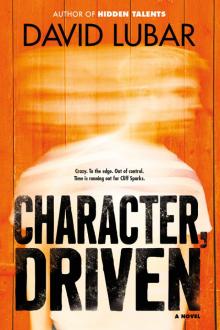 Character, Driven
Character, Driven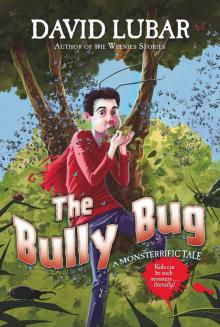 The Bully Bug
The Bully Bug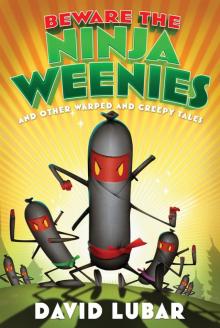 Beware the Ninja Weenies
Beware the Ninja Weenies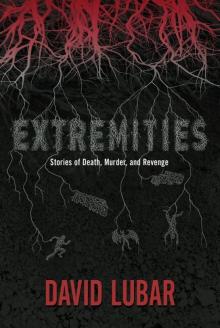 Extremities: Stories of Death, Murder, and Revenge
Extremities: Stories of Death, Murder, and Revenge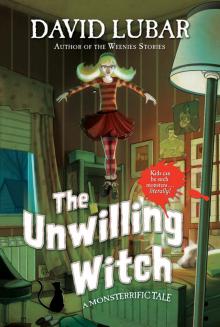 The Unwilling Witch
The Unwilling Witch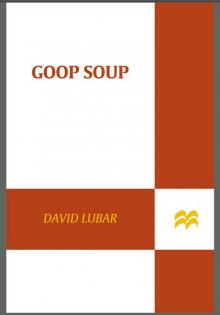 Goop Soup
Goop Soup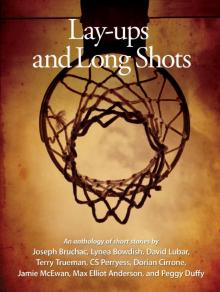 Lay-ups and Long Shots
Lay-ups and Long Shots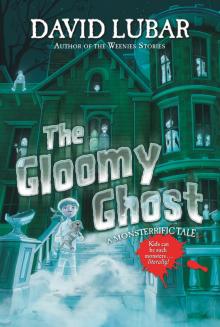 The Gloomy Ghost
The Gloomy Ghost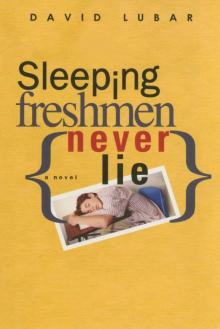 Sleeping Freshmen Never Lie
Sleeping Freshmen Never Lie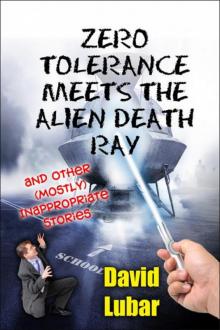 Zero Tolerance Meets the Alien Death Ray and Other (Mostly) Inappropriate Stories
Zero Tolerance Meets the Alien Death Ray and Other (Mostly) Inappropriate Stories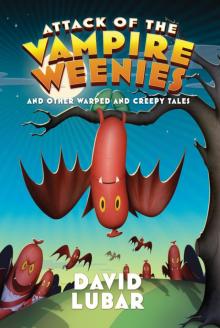 Attack of the Vampire Weenies
Attack of the Vampire Weenies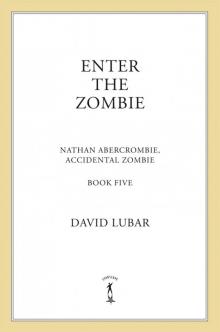 Enter the Zombie
Enter the Zombie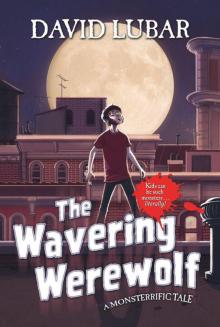 The Wavering Werewolf_A Monsterrific Tale
The Wavering Werewolf_A Monsterrific Tale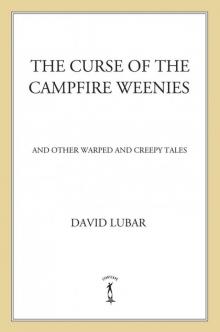 The Curse of the Campfire Weenies
The Curse of the Campfire Weenies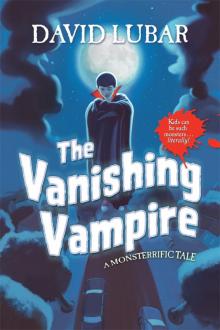 The Vanishing Vampire
The Vanishing Vampire